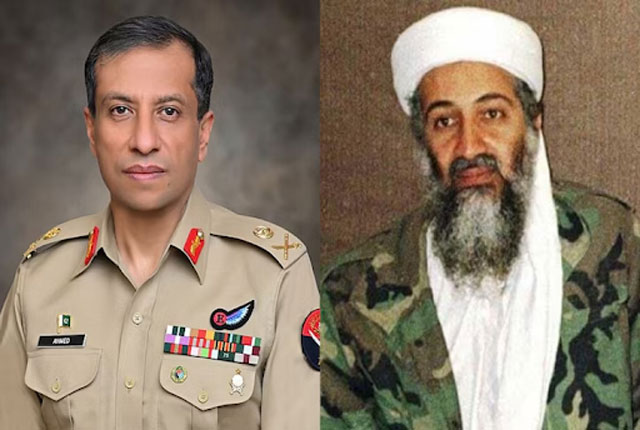Daijiworld Media Network – New Delhi
New Delhi, May 10: In a bizarre yet disturbing confluence of terror links, nuclear ambitions, and supernatural beliefs, the family of Pakistan’s military spokesperson, Lt General Ahmed Sharif Chaudhry, is now under the scanner. With heightened tensions between India and Pakistan, the spotlight has turned to General Chaudhry and more importantly, his father, a man whose past has rattled international intelligence circles.
Lt General Chaudhry, currently serving as the Director General of Inter-Services Public Relations (ISPR), hails from a family with deep roots in Pakistan’s nuclear history. His father, Sultan Bashiruddin Mahmood, was once a celebrated nuclear scientist and a recipient of Pakistan’s prestigious Sitara-e-Imtiaz. However, his post-retirement associations have drawn global concern, even earning him a place on the United Nations' sanctions list for alleged links with terrorist networks, including al-Qaeda.

Mahmood, a key figure in Pakistan's nuclear program under the Pakistan Atomic Energy Commission (PAEC), played a pivotal role in developing uranium enrichment facilities and transitioning the country’s nuclear arsenal towards plutonium-based capabilities. But it was his ideological journey after retirement that stirred alarm.
In the early 2000s, Mahmood co-founded a so-called NGO, Ummah Tameer-e-Nau (UTN), which operated in Taliban-controlled Afghanistan. Officially, UTN claimed to focus on infrastructure development in regions like Kandahar. But US and Pakistani intelligence later found that UTN had been a smokescreen, allegedly used to establish deeper ties with al-Qaeda and the Taliban.
As per United Nations findings, Mahmood, along with fellow scientist Chaudhri Abdul Majeed, met Osama bin Laden and Ayman al-Zawahiri in August 2001 — just weeks before the 9/11 attacks. During these meetings, discussions reportedly revolved around chemical, biological, and nuclear weapons. In one instance, a Bin Laden aide allegedly expressed possession of nuclear material and sought technical advice on weaponisation — which Mahmood allegedly provided.
"UTN provided Osama bin Laden and the Taliban with information about chemical, biological, and nuclear weapons," stated a UN report. “Bashiruddin Mahmood also met Mullah Omar and discussed nuclear infrastructure and weapon effects."
Despite the gravity of these interactions, Mahmood was eventually released by Pakistan’s intelligence agency, ISI, which cited that he lacked the technical ability to independently create a nuclear device.
Ironically, the man once honoured by Prime Minister Nawaz Sharif would later become one of his fiercest critics. Educated in the UK, Mahmood’s scientific papers also featured bizarre theories involving djinns — supernatural entities from Islamic lore — claiming they could be harnessed to solve global energy issues.
His son, Lt General Ahmed Sharif Chaudhry, however, has taken a different professional path through the Pakistan Army. An officer of the Corps of Electrical and Mechanical Engineering, he has served in critical defence institutions including the Military Operations Directorate and the Defence Science and Technology Organisation (DESTO), which itself was under US sanctions post-1998 nuclear tests — sanctions later relaxed post-9/11.
Adding another layer to this complex family history, the book The Man from Pakistan by Douglas Frantz and Catherine Collins describes Mahmood’s vision of Pakistan’s nuclear capability not as a national asset but as a shared "Islamic bomb" — intended for the defence of the broader Muslim world. The book also mentions the 2001 Kandahar meeting where Mahmood and Majeed are said to have provided al-Qaeda operatives with nuclear guidance.
While Lt General Chaudhry maintains a distinguished military profile, the shadow of his father’s controversial past continues to raise troubling questions, especially at a time when cross-border tensions and regional security remain volatile.